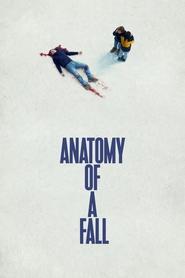Perceive you,” Vincent tells [Sandra]—a line rich in irony given that she has made a career doing just that, but with the plausible deniability that writing affords the novelist. The technologies of cinema seem to offer no such cover. Or do they? When the story shifts from the investigation to the courtroom, almost every scene, every testimony is keyed to a video or audio recording made in its first half. The film starts to loop back on itself; like “P.I.M.P.,” it seems to be stuck on repeat. [F]ar from establishing the definitive story, the film’s self-cannibalizing structure forces its mediums and its multiple languages into the same instability as the autofiction that Sandra writes.
— Merve Emre (New York Review of Books)

